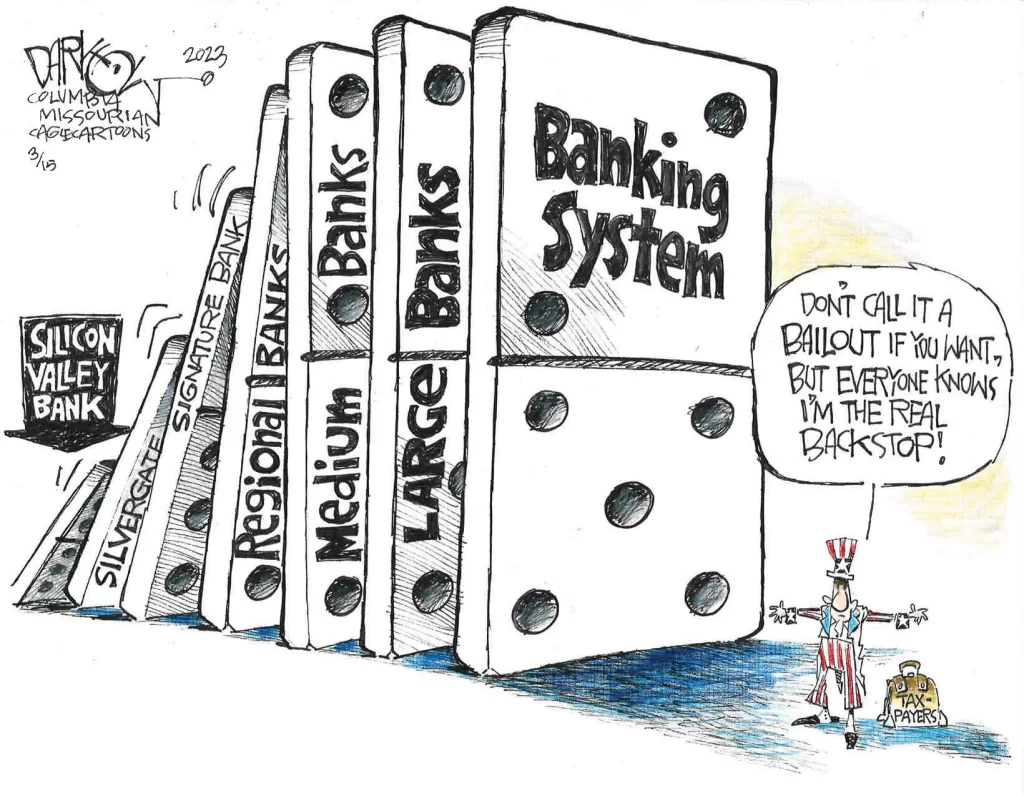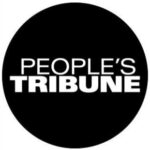
The recent bank failures – and the government bank bailouts – raise serious questions. Where is the bailout for the people? And why do we keep perpetuating a failing bank system?
In the 2008 financial crisis, the government bailed out the banks and essentially guaranteed their profits. Now we’re seeing a repeat performance. At Silicon Valley Bank, the average account had $4 million in it and the bank’s depositors included people like billionaire Peter Thiel. These rich folk are getting ALL their money back, more than the up to $250,000 that government promises each account owner through the Federal Deposit Insurance Corp.
In fact, U.S. Treasury Secretary Janet Yellen has already admitted that if you’re just the average depositor (not rich) and your bank fails, you won’t necessarily get all your money back. And you can bet the cost of bank bailouts will be passed on to consumers and taxpayers.
What bailouts do the rest of us get when we have trouble? As millions face hunger, the government ends the food assistance provided under Covid. New congressional agreements in the debt-crisis saga may make it even more difficult for hungry families to get food assistance. And will Cities keep leaving unhoused people outside in 80-mile-per hour winds and soaking rain in California again? Coupled with the layoffs in the tech industry, which includes lower wage workers too, if there is a major banking collapse, the numbers of people living outside, from any walk of life, could be huge. And yet there’s no plan to help anybody.
Two things seem clear: We can, and should, guarantee food and housing as a human right. And since the people are already paying for the losses and guaranteeing the profits of the banks, the government should take over at least the major banks and run them as public utilities in the interest of the people.

